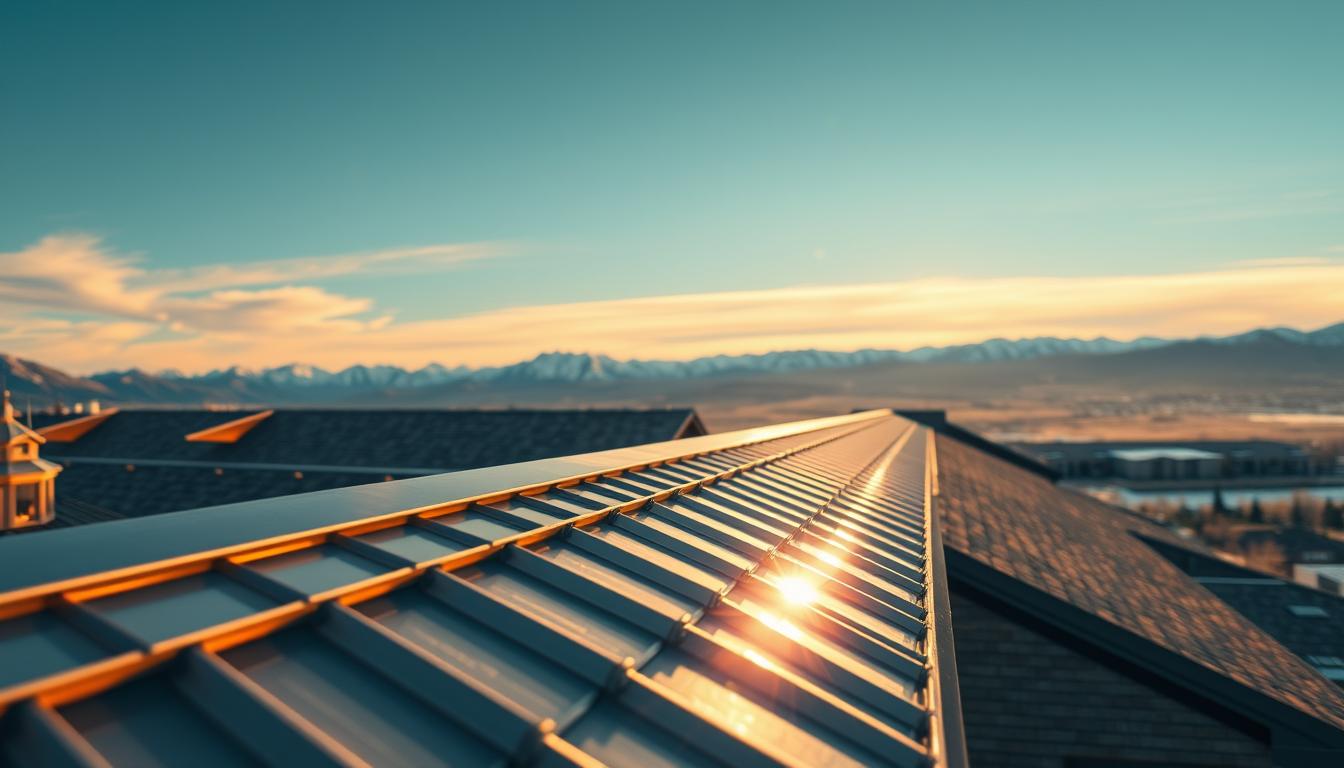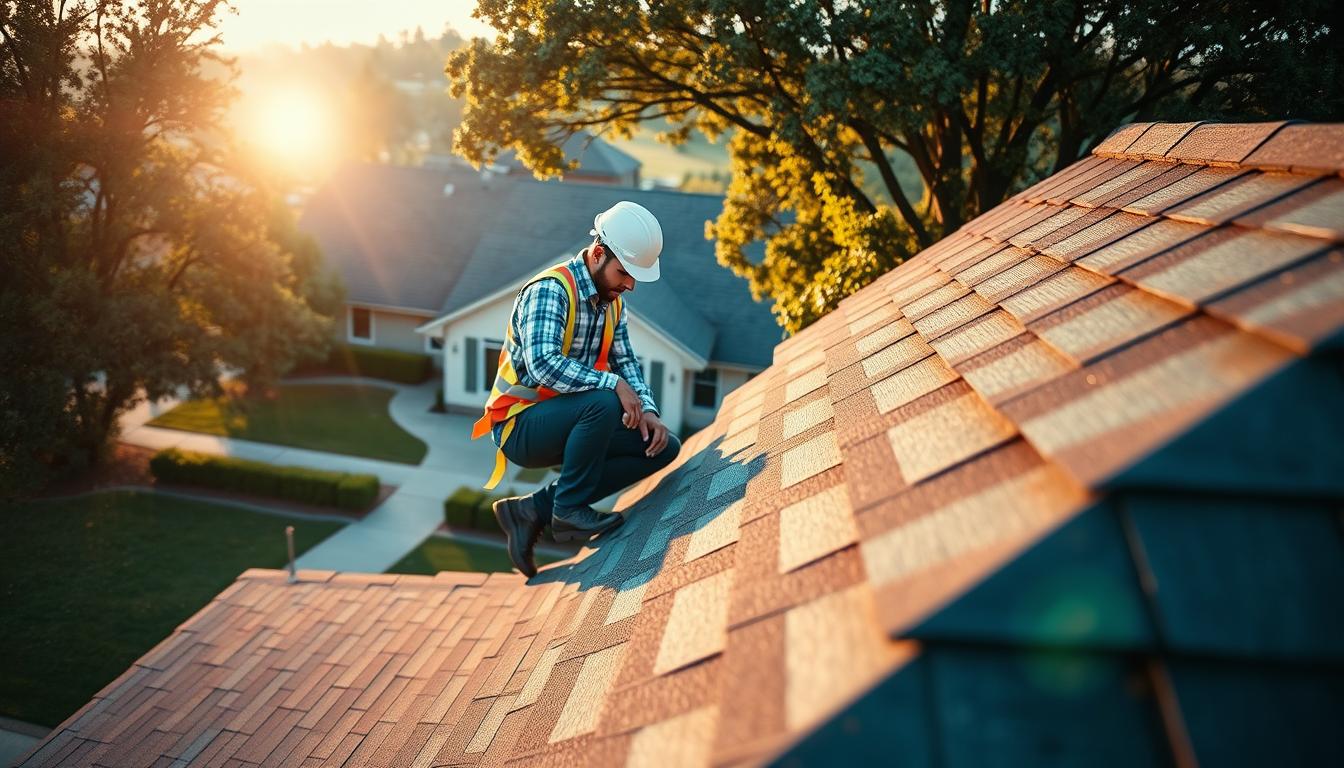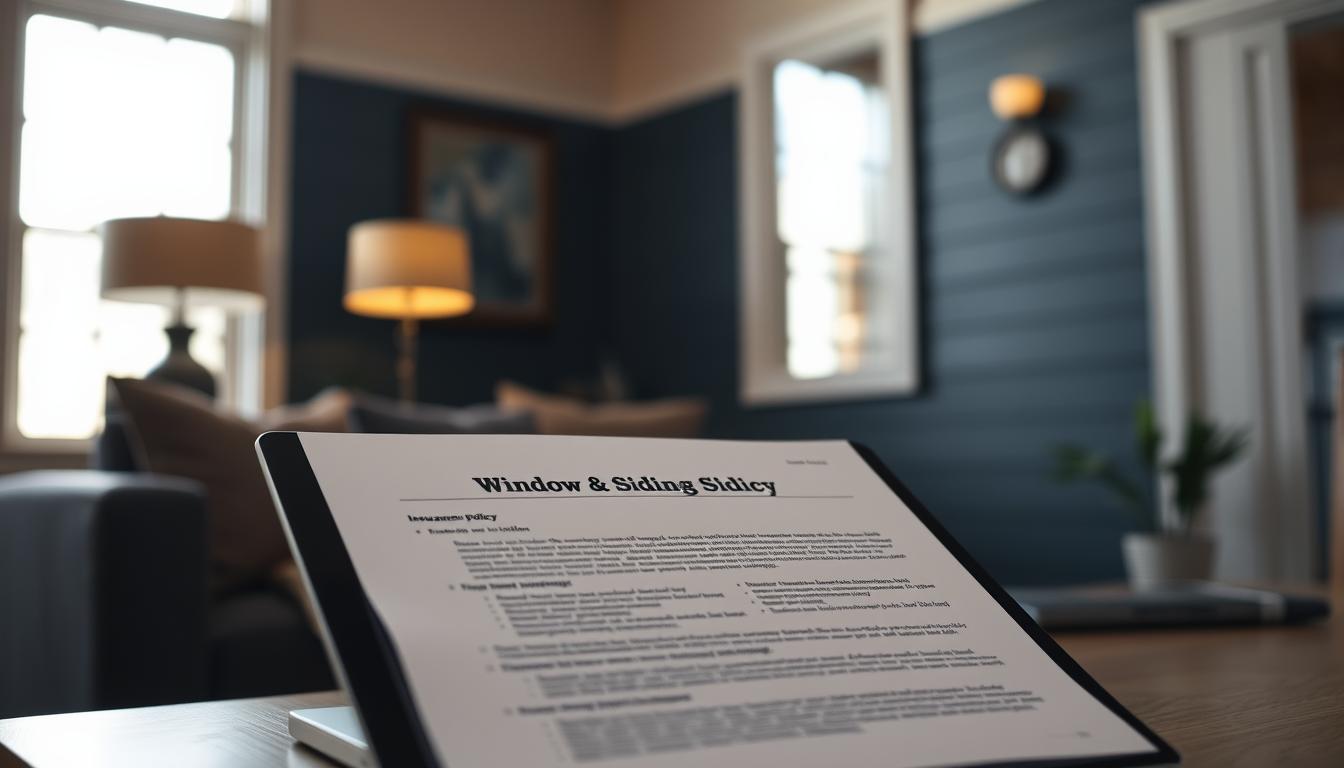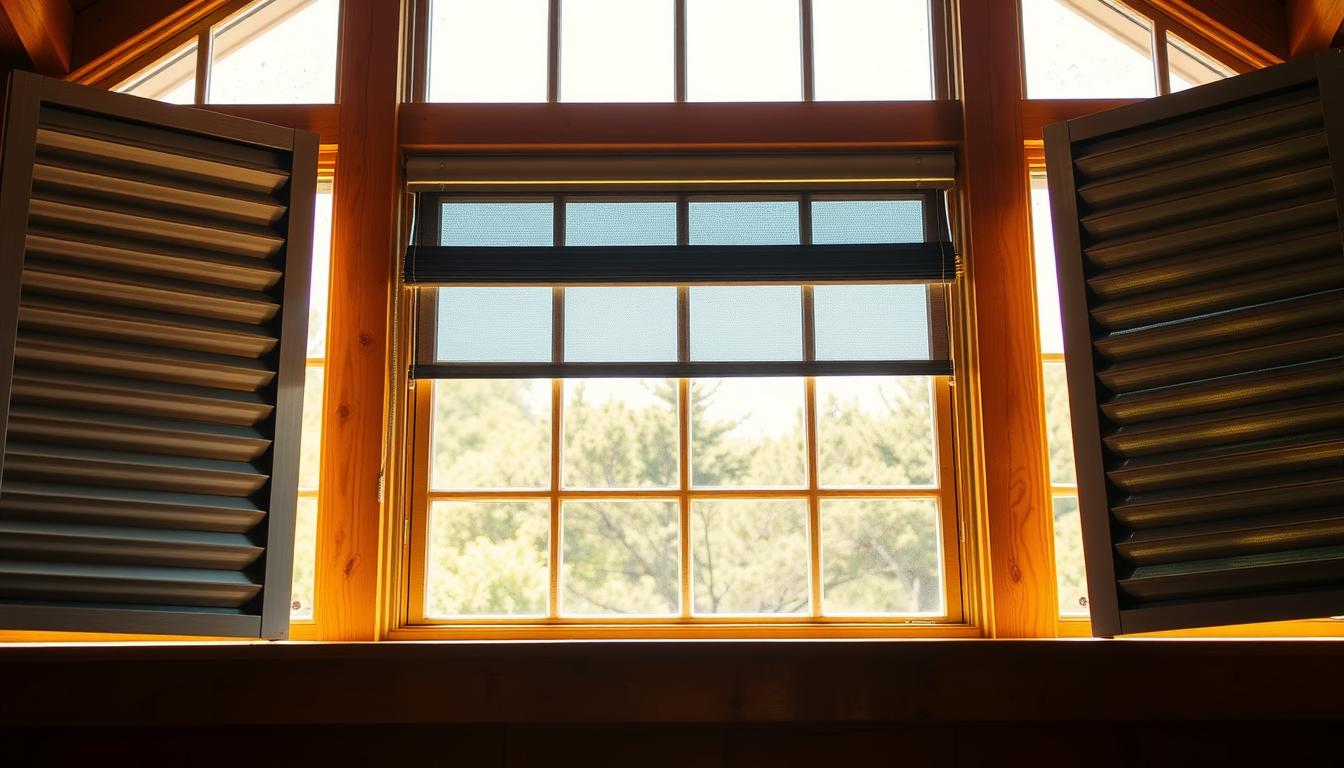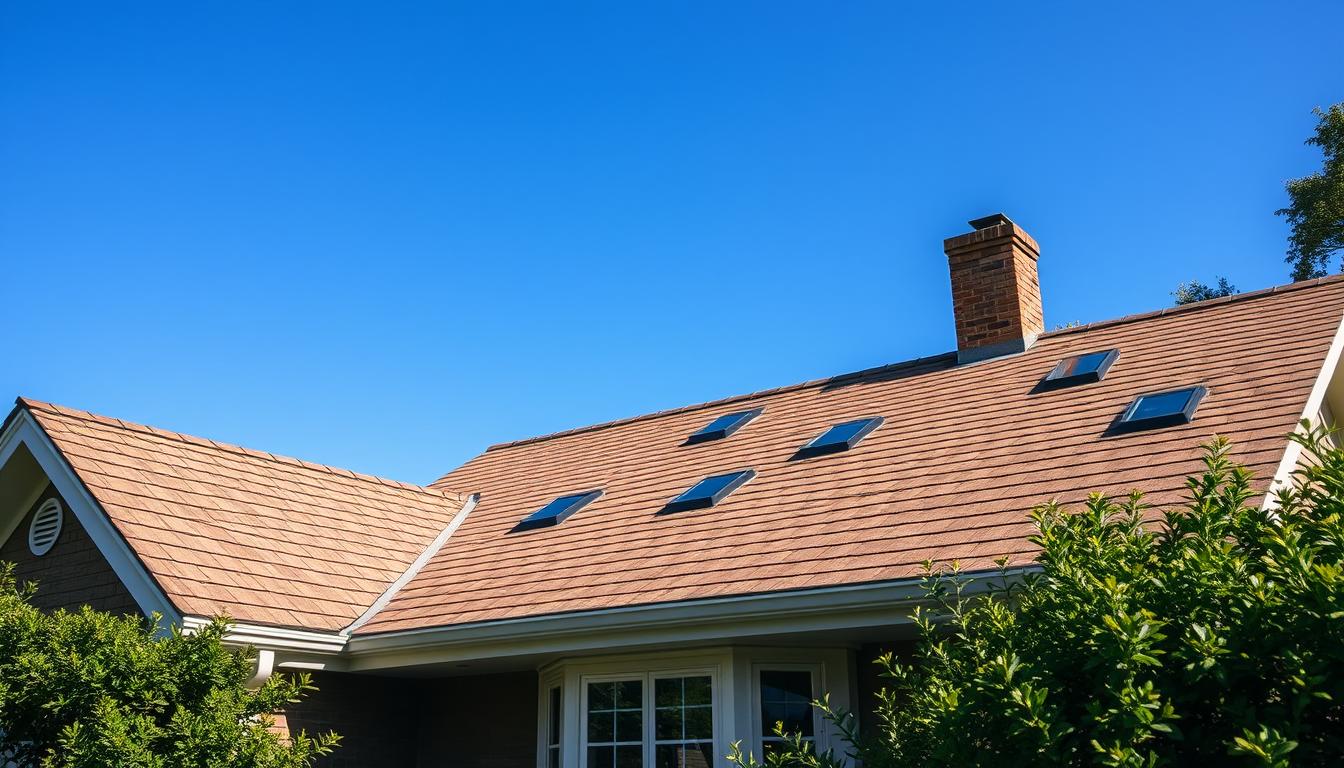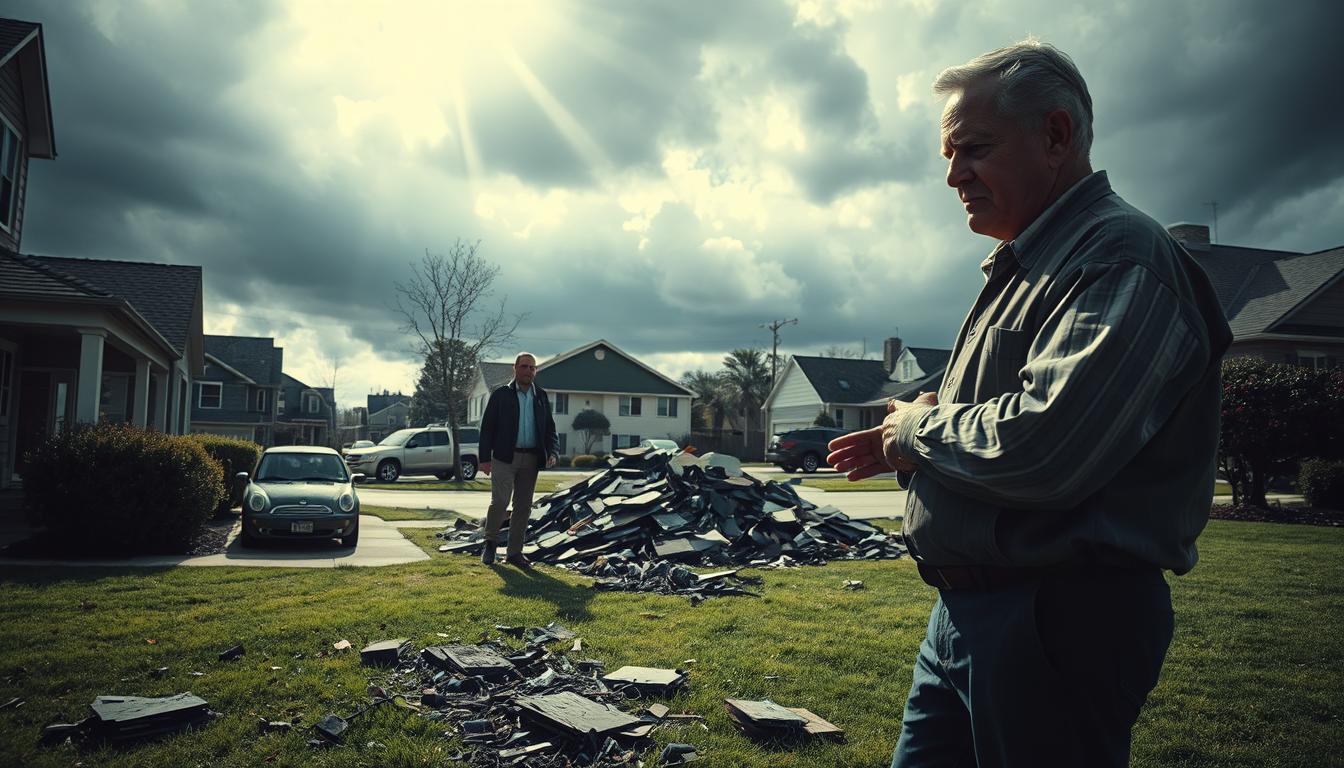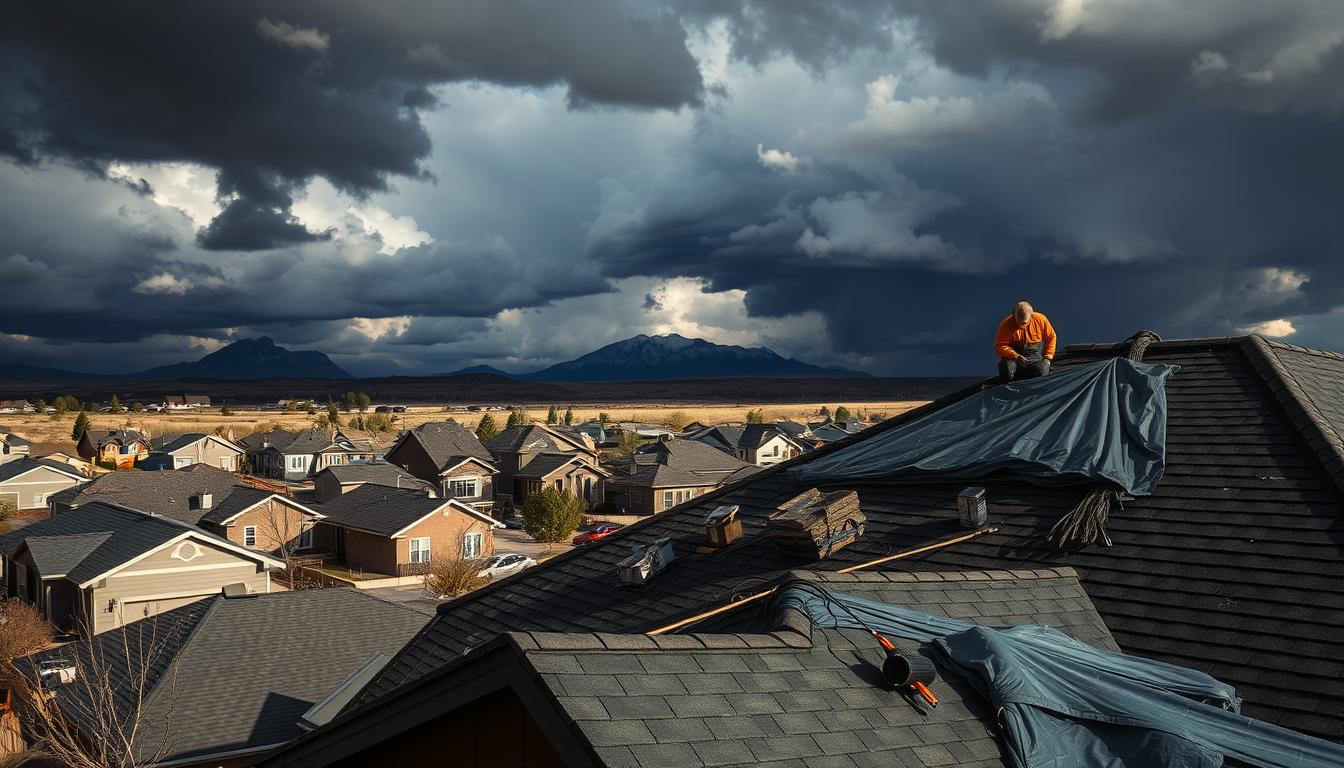Colorado’s climate is tough for homeowners looking for strong roofs. The Rich Co Inc in Colorado Springs knows how important the right roof is. They help keep homes safe from bad weather.
People in Colorado deal with a lot of weather problems. They face strong UV rays, hail, and snow. The best roofs in Colorado can handle these issues and more.
Choosing a roof is more than just picking a color. It’s about keeping your home safe. Homeowners need to think about fire safety, how well it can handle impacts, and how long it will last.
Key Takeaways
- Colorado’s unique climate demands specialized roofing solutions
- Fire and impact resistance are crucial for mountain region homes
- UV exposure can significantly degrade traditional roofing materials
- Professional assessment helps select the most suitable roofing option
- Innovative synthetic materials offer superior protection
Understanding Colorado’s Unique Climate Challenges
Colorado’s climate is extreme, posing challenges for homeowners and roofing experts. The state’s varied landscape tests roofing systems. Roofs must endure harsh conditions, from mountains to plains.
Temperature Fluctuations and UV Exposure
Colorado’s temperatures can drop below 0°F in winter and soar over 90°F in summer. These big changes stress roofing materials. The high altitude also increases UV radiation, making roofs last up to 50% less.
- Daily temperature swings can exceed 40°F
- UV radiation can reduce roof lifespan by up to 50%
- Reflective roofing coatings can reduce heat absorption by 30%
Extreme Weather Events
In Colorado, hail-resistant roofing is a must. The state gets hailstorms with hailstones up to 5 inches big. Storms can also bring winds over 100 mph, requiring strong roofs.
High Altitude Considerations
Roof insulation is key in Colorado for energy efficiency. At high elevations, homes need special insulation to handle extreme temperatures. Good insulation can cut heating costs by up to 20%, making the right materials crucial.
- Mountainous regions experience unique roofing challenges
- Proper insulation is essential for energy management
- Material selection impacts overall home efficiency
Best Roofing Materials Colorado: Top Choices for Durability
Colorado’s weather is tough, and homes need strong roofs. Roofs must handle high winds, hail, and big temperature changes.
- Asphalt shingles Colorado: Most affordable and widely used
- Metal roofing Colorado: Superior durability and longevity
- Tile roofing Colorado: Exceptional aesthetic appeal and resilience
Asphalt shingles are a favorite because they’re cheap. They last 12-20 years and protect well against normal weather. For better protection, choose ones with Class 4 ratings.
Metal roofs are great for mountain areas. They last 40-70 years and can handle winds up to 140 miles per hour. Plus, they’re recyclable and can save up to 25% on heating and cooling.
Tile roofs are a top choice for their long life. Concrete tiles can last up to 100 years. They’re perfect for Colorado’s tough weather and look great too.
Metal Roofing Solutions for Mountain Regions
Colorado’s mountain areas need roofs that can handle tough weather. Metal roofing is a strong and energy-saving choice for homes. It keeps properties safe from harsh mountain weather.
Mountain terrain poses unique challenges for roofs. They must handle big temperature swings, heavy snow, and strong UV rays. Energy-efficient roofing is a top pick for lasting protection.
Benefits of Standing Seam Metal Roofs
Standing seam metal roofs are great for mountain homes:
- They last 40-70 years
- Can withstand winds up to 140 mph
- Are fully recyclable
- Help save on cooling costs by reflecting sunlight
Snow and Ice Management Features
Metal roofing in Colorado is made for tough mountain weather. Its smooth surface and right installation stop ice dams and control snow in busy spots.
Long-term Cost Benefits
Installing metal roofing costs $10 to $14 per square foot at first. But, it saves money over time. Many insurance companies give discounts for its fire, hail, and wind protection.
Getting it installed by certified pros ensures it works best. Metal roofing is a smart choice for Colorado mountain homes.
Impact-Resistant Asphalt Shingles and Their Benefits
Colorado homeowners face unique roofing challenges, especially when it comes to protecting their homes from frequent hailstorms. Asphalt shingles in Colorado have evolved to meet these demanding weather conditions through innovative impact-resistant technologies.
Hail-resistant roofing in Colorado has become a critical investment for property owners. Class 4 impact-resistant shingles offer superior protection against severe weather events. These advanced roofing materials provide exceptional benefits:
- Withstand hailstones up to 2 inches in diameter
- Resist wind gusts up to 130 miles per hour
- Potential for 28% reduction in homeowners insurance premiums
- Extended warranty coverage (up to 50 years)
The UL 2218 impact test demonstrates these shingles’ durability. During testing, steel balls are dropped from specific heights to simulate hail impact. Shingles must show no evidence of tearing, cracking, or rupturing to receive Class 4 certification.
Investing in impact-resistant asphalt shingles goes beyond immediate protection. Homeowners can enjoy long-term financial benefits, including potential energy savings and increased property value. The initial upgrade cost averages around $1,000 for a standard roof, but the returns can be substantial.
For Colorado residents, these shingles represent more than just roof coverage—they’re a strategic defense against the state’s unpredictable and harsh weather conditions.
Professional Installation and Building Code Requirements
Understanding roofing laws in Colorado is complex. Commercial roofing needs to follow strict building codes to protect against harsh weather. For example, Longmont has a rule that says if over 100 square feet of roofing needs fixing, the whole roof must be replaced.
Flat roofs in Colorado must meet high standards for insulation and wind resistance. Commercial roofs need at least R-30 insulation above the deck. The International Building Code (IBC) sets rules for damage limits and ventilation to keep roofs strong over time.
Getting a roof installed right is more than just following rules. In Denver, you need to get permits and pay fees that can be high. It’s also important to have regular inspections, especially after bad weather. Roofers must follow many rules, like installing drip edges and ensuring proper ventilation.
Choosing a roofing expert who knows local codes is key. They make sure your roof is safe, whether it’s for a house or a big commercial building. With codes always changing, hiring pros gives you confidence and protects your property for years.
FAQ
What roofing materials work best in Colorado’s challenging climate?
How do temperature fluctuations affect roofing in Colorado?
Are impact-resistant shingles worth the investment?
What are the advantages of metal roofing in mountain regions?
How important is proper roof insulation in Colorado?
What roofing considerations are unique to Colorado’s high altitude?
Do commercial and residential roofing have different requirements in Colorado?
How can homeowners protect their roofs from hail damage?
Source Links
- https://www.cedur.com/best-roofing-material-for-colorado
- https://justroofsandgutters.com/what-type-of-roof-is-best-in-colorado/
- https://www.axeroofing.com/blog/what-is-the-best-roofing-material-for-hail
- https://solvistaroofing.com/blog/roofing-materials-for-colorado/
- https://peaktopeakroofing.com/blog/blog/choosing-the-right-roofing-material-for-colorados-unique-climate/
- https://apexroofingusa.com/whats-the-best-roofing-material-for-colorados-climate/
- https://www.decra.com/blog/best-type-of-roof-for-colorado-homes
- https://roof-check.com/best-roofing-materials-for-colorado/
- https://sheffieldmetals.com/western-us-metal-roofing-products/
- https://coloradoroofingsolutions.com/metal-roofing-benefits/
- https://roofsourcellc.com/roofing/best-roofing-material-choices-in-colorado/
- https://metrocityroofing.com/asphalt-shingle-roofing/impact-resistant-shingles/
- https://bluefrogroofing.com/the-benefits-of-impact-resistant-shingles-in-colorado/
- https://longmontcolorado.gov/building-inspection/roofing-guidelines-for-commercial-and-residential-projects-1/
- https://www.apcroofing.com/blog/what-you-need-to-know-about-roofing-regulations-in-denver/
- https://www.larimer.org/sites/default/files/uploads/2022/2021_irc_amendments_final_1.pdf

